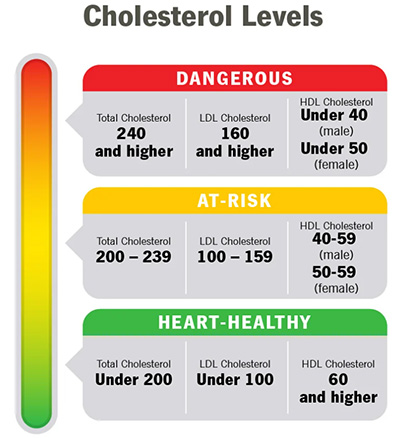
A quick overview of what we’ll cover in this post:
- What are causal factors of heart disease
- Ways to prevent heart disease and how AgelessRx is different
- How to monitor biomarkers that impact your risk
Cardiovascular disease (including heart disease) is the most common cause of death globally. In fact, about a third of deaths each year are caused by cardiovascular disease. Heart disease generally starts at a young age1, and is often asymptomatic–so your risk may be growing without you even knowing.
Fortunately, the majority of cardiovascular disease, including heart disease and strokes, are preventable. In fact, nearly 80% of cardiovascular events can be prevented with the right strategies. Armed with the right knowledge and tools, heart disease could be preventable for you, and your loved ones.
AgelessRx has all you need to prevent heart disease and lower your risk, including things traditional medicine might never share with you until it’s too late. There are plenty of tools that can help you better assess whether your heart health is optimal, such as this free 30-year risk calculator that we designed to help you optimize your risk. Keep reading to learn more.
What causes heart disease?
While genetics may affect your risk of heart disease, causal factors are far more likely to drive your risk of heart disease. The most common causal factors include:
- High LDL cholesterol levels
- Smoking
- Hypertension
- Poor metabolic health
How can I prevent heart disease?
At Ageless Rx, we recommend three key strategies to help you keep track of and lower your risk of heart disease. Whereas most doctors will tell you whether your levels are “fine” and/or “normal”—we believe that “normal” is not necessarily good and you really want to be optimal. Our clinicians are experts on helping you achieve optimal levels.
Monitor your biomarkers
There are several biomarkers, or signs, that can show a person’s risk for heart disease. Some may be included in regular screenings or exams, but most are not. Here are seven biomarkers we think you should keep an eye on.
1. Triglycerides and cholesterol (LDL and HDL)
Most guidelines recommend keeping your LDL cholesterol levels below 100 mg/dL and your HDL cholesterol levels around 60 mg/dL or higher. However, research shows that LDL levels around 100 mg/dL can still propose potential risks. Our medical advisory board recommends the following optimal levels:
How do your LDL cholesterol levels compare?
Most tests that measure for cholesterol (called a lipid panel) also measure triglycerides. High triglyceride levels can lead to atherosclerosis, or the hardening of arteries. “Normal” levels are anything lower than 150 mg/dL. Our medical advisory board recommends triglycerides levels be below 100 mg/dL for optimal heart health.
2. Apolipoprotein B100 (ApoB)
Apolipoprotein B100 (ApoB) is a marker that measures cardiovascular risk levels more effectively than LDL. Generally, you want a level under 100 mg/dL, and at AgelessRx we consider under 80 mg/dL optimal. ApoB is considered one of the strongest factors for reducing risk of atherosclerotic cardiovascular disease (ASCVD) mortality.
Most doctors don’t check for ApoB, however. Fortunately, this is something you can keep track of with the use of our Core Longevity Panel.
3. Coronary artery calcium (CAC)
Monitoring your coronary artery calcium (CAC) levels can also help prevent heart disease. While not a standard test, it can give you additional insight into your risk levels.
4. Lipoprotein (a)
Lipoprotein (a), or Lp(a), helps transport cholesterol around the body. High Lp(a) levels (anything above 50 mg/dL) can pose heightened risk of heart disease and affects about 1 in 5 people. An Lp(a) test is often overlooked in cardiovascular disease care, making it one of the most important blood tests you should ask your doctor to order. Due to its genetic cause, diet and lifestyle changes can have little effect on plasma levels of Lp(a).
5. Blood pressure
Excess pressure can weaken arteries and heart muscles over time, making it harder for the heart to pump blood. Generally, you want your blood pressure lower than 120/80mmHg.
6. Uric acid
The body produces uric acid as a waste byproduct. Build up of uric acid in the body can lead to conditions like gout.
Research also shows that uric acid can lead to different kinds of heart disease, such as hypertension, coronary artery disease, and more.
7. Homocysteine
Homocysteine can be an indicator of stress levels. High levels of stress can cause inflammation, which plays a big role in causing heart disease.
Make lifestyle changes
Making changes to your lifestyle is often the first suggestion your doctor will make. This includes changes to your diet and exercise habits, which can help manage risk factors like blood pressure and cholesterol levels. However, despite our best efforts, these strategies may only help you to achieve “normal” levels instead of optimal ones.
Optimize your biomarkers
Medications like statins are used to help people with high cholesterol get their levels to a healthy range, especially if lifestyle changes are not helping you reach optimal levels or you are unable to maintain a healthy lifestyle.
Statins can also help people who have elevated cholesterol levels, even if they’re not considered “high.” And the longer you take statins, the more you are likely to benefit. That’s likely because your LDL and ApoB levels remain low for a longer period of time, which may help to prevent additional and/or unnecessary arterial damage and further reduce your risk of heart disease.
Tackle your risk of heart disease
Heart disease is preventable, and we’ve got the tools to help. Here are a few tools we offer at AgelessRx:
Core Longevity Panel
Our Core Longevity Panel is a lab-based blood test that can measure several biomarkers of heart disease, including cholesterol and ApoB levels.
Free Personalized Wellness Assessment
Our free Personalized Wellness Assessment provides a range of information about different aspects of your health, including sleep, diet, and exercise habits. You’ll get an overall longevity score and tips and strategies to help improve your longevity. In addition to our free Personalized Wellness Assessment, you can calculate your 30 year risk of developing heart disease and learn ways you can lower that risk with our free ASCVD Risk Assessment.
Ready to get a better understanding of your risk for heart disease? Start by taking our free personalized wellness assessment and reveal your potential risk today!
Note: The above statements have not been evaluated by the Food and Drug Administration. This product is not intended to diagnose, treat, cure, or prevent any disease.
References:
1Stary HC. Evolution and progression of atherosclerotic lesions in coronary arteries of children and young adults. Arteriosclerosis. 1989;9(suppl I):I-19-I-32.

